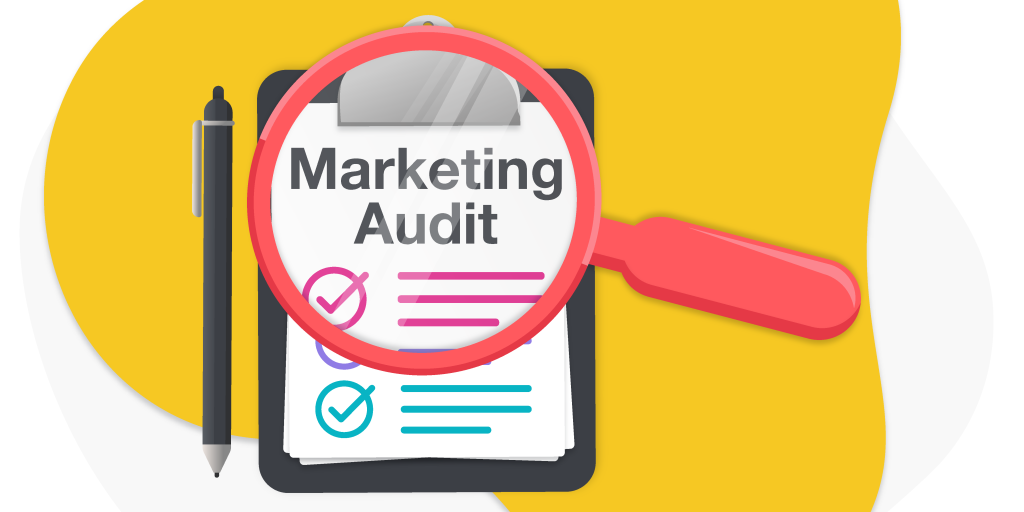Is Your Marketing Strategy Effective? Find Out with a Digital Marketing Audit
In today’s digital age, maintaining a robust online presence is crucial for businesses of all sizes. A well-executed digital marketing strategy can significantly enhance a company’s visibility, customer engagement, and overall success. However, to ensure these strategies are effective, a thorough evaluation is necessary. This is where a digital marketing audit comes into play.
What is a Digital Marketing Audit?
A digital marketing audit is a comprehensive analysis of your business’s digital marketing efforts. It involves evaluating various components such as your website, SEO (Search Engine Optimization), social media presence, content marketing, email campaigns, and PPC (Pay-Per-Click) advertising. The goal is to identify strengths, weaknesses, opportunities, and threats within your current digital marketing strategy.
Key Components of a Digital Marketing Audit:
- Website Performance: Assessing the usability, design, speed, mobile responsiveness, and overall user experience.
- SEO Analysis: Evaluating on-page and off-page SEO practices, keyword usage, backlink quality, and search engine rankings.
- Social Media Engagement: Analyzing the effectiveness of social media strategies, engagement rates, content performance, and follower growth.
- Content Marketing: Reviewing the quality, relevance, and effectiveness of content across various platforms.
- Email Marketing: Measuring the success of email campaigns through metrics like open rates, click-through rates, and conversions.
- PPC Advertising: Analyzing the performance of paid advertising campaigns, including CPC (Cost-Per-Click), ROI (Return on Investment), and overall ad effectiveness.
Why is a Digital Marketing Audit Important?
1. Performance Evaluation
A digital marketing audit provides a clear picture of how well your current strategies are performing. By analyzing key metrics, you can identify which tactics are driving results and which ones need improvement.
2. Identify Strengths and Weaknesses
Every digital marketing strategy has its strengths and weaknesses. An audit helps uncover these, allowing you to capitalize on your strengths and address areas of weakness. This targeted approach leads to more efficient and effective marketing efforts.
3. Optimize Resource Allocation
Marketing budgets, especially for small businesses, are often limited. A digital marketing audit helps optimize resource allocation by highlighting high-performing strategies and areas where investments may not be yielding desired returns. This ensures that your marketing budget is spent more efficiently.
4. Stay Competitive
The digital landscape is highly competitive, with new trends and technologies emerging regularly. A digital marketing audit helps businesses stay competitive by providing insights into industry trends and competitor strategies. By understanding what your competitors are doing, you can adapt and refine your strategies to maintain a competitive edge.
5. Strategic Alignment
Ensuring that all digital marketing activities align with overall business objectives is crucial for long-term success. A digital marketing audit helps achieve this alignment by evaluating how current strategies contribute to business goals. This ensures that all marketing efforts are focused on driving growth and achieving business objectives.
How a Digital Marketing Audit Helps Small Businesses Grow
1. Enhanced Decision-Making
Data-driven decision-making is at the core of successful digital marketing. A digital marketing audit provides valuable data and insights that enhance decision-making processes. Small businesses can use these insights to make informed choices about their marketing strategies, leading to better outcomes and improved performance.
2. Improved Customer Experience
A significant aspect of digital marketing is the customer experience. An audit evaluates how users interact with your digital assets, including your website, social media channels, and email campaigns. By identifying areas where the user experience can be improved, businesses can enhance customer satisfaction, leading to higher retention rates and increased loyalty.
3. Targeted Marketing Efforts
A digital marketing audit helps small businesses understand their audience better. By analyzing customer behavior and preferences, businesses can create more targeted and personalized marketing campaigns. This leads to higher engagement and conversion rates.
4. Cost-Effective Marketing
For small businesses with limited budgets, a digital marketing audit ensures that every dollar spent on marketing is used effectively. By identifying and focusing on high-performing strategies, small businesses can maximize their return on investment and achieve better results with fewer resources.
5. Increased Visibility
An optimized digital marketing strategy, informed by a comprehensive audit, can significantly increase a small business’s online visibility. Improved SEO, effective social media engagement, and quality content all contribute to higher search engine rankings and greater online presence.
Don’t Miss Out – Claim Your Free Digital Marketing Audit Today!
Take the first step towards optimizing your digital marketing strategy and driving business growth. Visit DigitViral.com to claim your free digital marketing audit now and discover the full potential of your online presence.
Enhance your digital marketing efforts with expert insights and tailored recommendations from DigitViral.com. Your business deserves the best – and it starts with a free digital marketing audit.
In conclusion, a digital marketing audit is an essential tool for any business looking to enhance its online presence and achieve better results. For small businesses, in particular, it provides a cost-effective way to optimize marketing efforts, improve customer experience, and stay competitive in a rapidly changing digital landscape. By regularly conducting digital marketing audits, small businesses can ensure that their strategies remain effective and aligned with their overall business goals, leading to sustainable growth and success.



